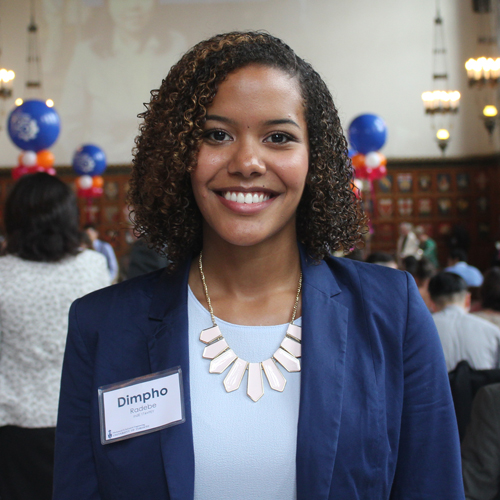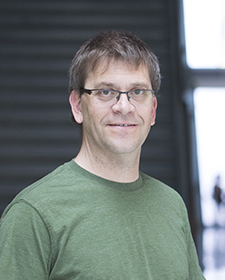Industrial Engineering
Industrial engineers improve the way people interact with technologies and systems.
They help organizations run safely, efficiently and profitably. The Industrial Engineering undergraduate program at MIE provides students with the foundations of industrial engineering: operations research, programming, and human-centered design. Students learn about improving various environments, from streamlining health-care systems to rethinking supply chains and the online user experience in the era of artificial intelligence.
The Industrial Engineering program includes four years of coursework as well as an optional year in the Professional Experience Year (PEY) co-op program. Graduates of the Industrial Engineering undergraduate program receive a Bachelor of Applied Science degree.
The first two years of the program provide students with a broad understanding of the discipline. In the third and fourth years, students are able to tailor their program to their personal interests by selecting technical electives from four areas of academic focus: Artificial Intelligence & Machine Learning, Human Factors, Operations Research and Information Engineering
After the third year of study, students are encouraged to participate in the PEY co-op program where they have the opportunity to work full time for 12 to 16 months before returning to their final year of study. All engineering students must complete a minimum of 600 hours of practical work before graduation. Learn more about the Practical Experience Requirement.
During their final year of study, students take part in the Capstone design program. Capstone teams are paired with industry and community clients to address real-world challenges. The program culminates in a showcase featuring the prototypes and final designs created by the students.
In addition to coursework and professional development, there are many student research opportunities for undergraduate students to get involved in the groundbreaking research conducted by MIE's world-renowned faculty. Students can also choose to pursue a thesis project in their final year.
All Industrial Engineering candidates are required to provide competitive results in math, chemistry and physics courses. Additional requirements are determined by the prospective student's education system. Visit the Discover Engineering website for more info on academic requirements.
The information below is for reference only and is subject to change annually. View updated tuition fees for domestic and international students on the Student Accounts website.
Full-time
Pay annually:
- Domestic students: $14,180/year
- International students: $58,680/year
Part-time
Pay per course:
- Domestic students: $1,418/course
- International students: $5,868/course
Visit the Discover Engineering website to view important admissions deadlines and how to apply.
Industrial Engineering undergraduate students are required to complete 600 hours of Practical Experience and:
- First year:
- 12 Core Courses
- Second year:
- 10 Core Courses
- Third year:
- 6 Core Courses
- 2 Technical Electives
- 2 Complementary Studies/Humanities and Social Science Electives
- Fourth year:
- 3 Core Courses (Including Capstone)
- 4 Technical Electives
- 2 Complementary Studies/Humanities and Social Science Electives
View all Industrial Engineering courses on the Academic Calendar. The U of T Engineering course timetables display the day of the week, time, location and instructor for courses offered in the Faculty. Students use the timetable to create their course schedule.
3rd and 4th year courses & options
Students tailor their upper years of study to their personal interests by selecting many of their courses from a list of electives that fall within four categories:
- Complementary Studies (CS)
- Humanities & Social Science (HSS)
- Natural Science (NS)
- Technical (courses that count as Technical Electives indicated on Academic Calendar)
View all available electives on the Academic Calendar. Learn more about electives on the U of T Engineering Office of the Registrar website.
Students select their technical electives from four areas of academic focus:
Explore the Industrial Engineering program (old curriculum) in the 2024/25 Course & Options Handbook
Explore the Industrial Engineering program (NEW curriculum) in the 2024/25 Course & Options Handbook
Industrial Engineering students can choose to pursue minors and certificates in addition to their primary program.
Learn more about the available Minors and Certificates on U of T Engineering's Office of the Registrar website.
There are many opportunities for undergraduate students to get involved in the groundbreaking research conducted at MIE. View a list of current research projects seeking student support on the Student Research Opportunities page.
In their final year of study, undergraduate students can choose to undertake a thesis project under the supervision of a U of T faculty member as part of the MIE498 course. Students can directly contact a faculty member with a thesis proposal or find a thesis topic listed on the Student Research Opportunities page. Once the topic and supervisor have been determined, the student must complete and submit the thesis enrollment form on the Forms & Policies page.
The Jeffrey Skoll Bachelor of Applied Science (BASc) and Master of Business Administration (MBA) program provides U of T engineering students the opportunity to pursue an MBA degree at the Rotman School of Management immediately after completing their BASc degree. Learn more about the Skoll BASc/MBA Program.
Indy Club is the student council for Industrial Engineering students at the University of Toronto. They help bridge the gap between students and faculty by participating in regular meetings with MIE staff and faculty. All Industrial Engineering students are members of Indy Club and are encouraged to participate in Indy Club activities and events.
The Mech and Indy Club office and common room is located in Room 225 in the Mining Building, 170 College Street.
Students are encouraged to get involved with Indy Club, as well as other clubs and extracurricular activities at U of T.
Faculty of Applied Science & Engineering
- Main U of T Engineering website
- Admissions Office
- First Year Office
- Registrar's Office
- Tuition fees
- Engineering Career Centre
- U of T Engineering News
- Mech Club
- ME Undergraduate Student Council
- Engineering Society
- Engineering Undergraduate Student Government
University of Toronto
- Main U of T website
- Campus closures
- U of T Student Accounts & Fees
- U of T Health & Wellness
- Co-Curricular Record
- Paid & unpaid student work opportunities
- Starting Point
- Weekly email listing upcoming workshops and events that can be credited on students' Co-Curricular Record
- Engineering Portal
- Book appointments
- Request transfers
- Petitions
- Degree Explorer
- Degree planning tool
- Degree requirements
Email: undergrad@mie.utoronto.ca
Phone: 416-978-6420
Office: Room 109, 5 King's College Road
Hours: Monday to Friday, 9 am - 4 pm
Mailing address:
Undergraduate Studies Office, MC109
Department of Mechanical and Industrial Engineering
University of Toronto
5 King’s College Road
Toronto, ON M5S 3G8 Canada
All inquiries regarding admissions to the program (including transfers) should be directed to the Admissions Office. Students in the first year of their program should contact the First Year Office for support.


